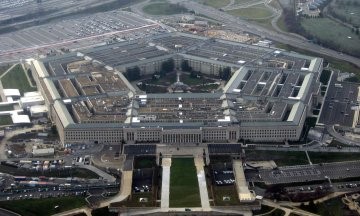
作者/Author(s): Seth G. Jones and Alexander Palmer
網站來源/Source: CSIS
日期/Date: 03/06/2024
關鍵字/Keywords: 軍事、國防工業基地
摘要:
美國的國防工業基地必須進行改革,加速追趕中國國防生產的腳步,否則美國將面臨諸嚇阻力與戰鬥能力不足等問題。
主要問題
- 美國國防工業基地目前尚處於和平時期,但中國卻是戰時生產階段。與美國相比,中國願意投入更多的國防開支,而且擁有美國所沒有的大規模艦船生產能力。
- 美國國防工業基礎存在各種生產困難,缺乏振興國防工業的緊迫感、缺乏應對持久戰的彈藥或其他武器平台、供應鏈挑戰以及缺乏勞動力等。
- 美國未能有效利用其聯盟和夥伴關係,在國防工業生產中缺乏跨國合作。
- 由於政府和私營部門利益相關者眾多,美國國防工業基地存在太多官僚主義障礙。
美國可以做些什麼?
- 白宮必須建立一個架構,提供戰略指導並隨時控管國防工業基地的振興。
- 美國必須根據當前的安全環境增加國防開支,以提高嚇阻力和作戰能力,並與中國競爭。
- 國防部和國會必須通過多年期契約促進國防投資,劃撥更多資金建設和維護戰略儲備。
- 美國必須擴大國防工業基地供應商,提供激勵措施有效提升勞動力水平。
- 白宮和相關政府機構必須減少對盟友和夥伴進行軍事銷售和直接商業銷售時可能會面臨的官僚障礙,同時也要制定更有效率的審查流程,簡化軍事銷售並減少軍事銷售合約積壓,甚至應協調密切盟友間的供應生產。
The US defense industrial base must reform to catch up to China in defense production, or the US will face challenges such as weakening deterrence and warfighting capabilities.
Key Problems
Key Problems
- The US defense industrial base is on a peacetime footing, but China is on a wartime production. China is also willing to invest more in defense spending than the US. Further, China has massive ship-producing capacities that the US does not have.
- The US defense industrial base has various production difficulties, such as a lack of urgency in rejuvenating the defense industry, a lack of munitions or other weapon platforms for a protracted war, supply chain challenges, and a lack of workforce.
- The US had not effectively leveraged its alliances and partnerships because there was a lack of transnational cooperation in defense industrial production.
- There are too many bureaucratic barriers in the defense industrial base because there are many government and private sector stakeholders.
What the US could do?
- The White House must create a framework that offers strategic guidance and monitors the rejuvenation of the defense industrial base.
- The US must increase its defense spending according to the current security environment to improve deterrence and warfighting capabilities and to compete with China.
- The Department of Defense and Congress must promote defense investment through multiyear contracting and allocate additional funding to build and maintain strategic stockpiles.
- The US must expand its suppliers for the defense industrial base and provide incentives to upgrade its workforce.
- The White House and related government agencies must reduce the bureaucratic barriers for FMS and Direct Comercial Sales to allies and partners. They also must develop better review processes to streamline FMS and reduce the backlog of FMS contracts. The US should also coordinate supply production with its close allies.
